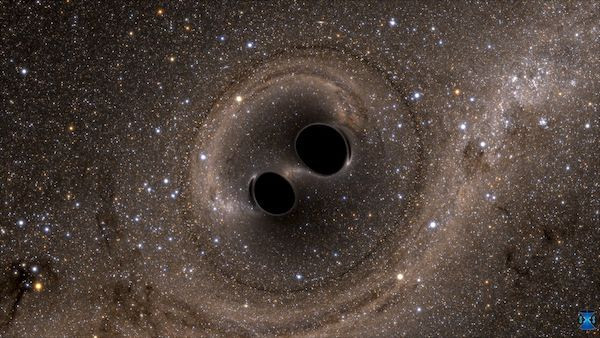Are Small Black Holes Deadlier Than Big Ones? ‘The Copernicus Complex’ Author Answers

Columbia Astrobiology Center at Columbia University, New York Director Caleb Scharf has finally answered the question that may have been secretly bugging everyone’s mind — Are smaller black holes deadlier than big black holes?
In an exclusive video for Business Insider, the author of “The Copernicus Complex” set the record straight on which type of black hole could be more dangerous to a human being should he or she fall into one, hypothetically speaking. “Small black holes are much more deadly than big black holes,” Scharf said.
According to Scharf, the reason why small black holes are deadlier is due to the fact that the small ones have very extreme gravitational tidal fields. Therefore, if a human falls into a small black hole, it’s very likely that the tidal field will “spaghettify” his or her body and stretch the body out to its component atoms.
On the contrary, Scharf compares giant black holes with gentle beasts when speaking of their tidal fields. “So you could actually cross through the event horizon of a giant black hole and not really feel anything,” the astrobiologist said. However, even though a human being is unlikely to be pulverized by the tides of the giant black hole, there is still a big downside to this situation — being unable to come back out of the hole again.
Despite answering the question, Scharf still maintains that there is no way of knowing what really happens for sure. Nevertheless, his answer is grounded on the classical general relativity theory.
Meanwhile, although scientists have long believed that black holes are the deadliest force in the universe, there are still others who prefer to dissent. Just last year, an Ohio State University scientist proposed a bizarre theory called the “fuzzball” theory that contradicts what has been said about black holes.
According to Dr. Samir Mathur’s proposed theory, black holes do not destroy everything they touch. The scientist stated that black holes are actually very timid that even if planet Earth is swallowed by one, everyone wouldn’t notice this event at all. Dr. Mathur even proposed that black holes create an imperfect copy of the material they touch, while the original one continues to exist as before, as reported by Daily Mail.
Dr. Mathur formulated his fuzzball theory way back in 2003, but it was only until 2015 when his theory got published in Arxiv. Despite his perception of what black holes really are, Dr. Mathur also acknowledged the more popular firewall theory for black holes. According to him, if the firewall theory is proven to be true, “then the idea of the universe as a hologram has to be wrong.”
© Copyright IBTimes 2025. All rights reserved.




















